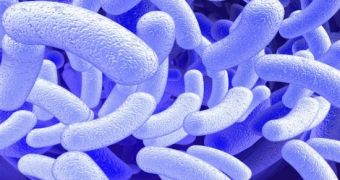Researchers working with the Massachusetts Institute of Technology (MIT) now claim to have developed an innovative way of using a genetically modified bacterium to produce a worthy replacement for gasoline.
More precisely, their recent investigations on this issue showed that the carbon stored by these bacteria when under environmental stress could successfully be turned into isobutanol, a chemical compound which can either take the place of or be mixed with gasoline, thus cutting down on our society's dependence of the latter.
As the scientists explain, the bacterium that had in view for these experiments is a rather common one: Ralstonia eutropha.
However, what makes this microorganism so special is the fact that, when placed under specific conditions it perceives as negative, it switches from growing to storing carbon in the form of a polymer.
However, by toying with its genetic make-up, the researchers “convinced” the Ralstonia eutropha to produce said gasoline replacement, rather than the aforementioned plastic material.
Interestingly enough, this bacterium does not lock the isobutanol it produces within its body, as other similar microorganisms do whenever they develop various chemical compounds.
Quite the contrary: it releases it in its surrounding environment, making its retrieval possible without the need to halt the isobutanol generating process or to destroy the bacterium.
Presently, the MIT scientists are working towards getting the Ralstonia eutropha to perform its job of manufacturing and releasing isobutanol when placed under a continuous stream on carbon dioxide, and thus improve on the general efficiency of this process.
It is to be expected that, in the not-too-distant future, further modifications in the genetic make-up of this bacterium will also allow specialists to use organic waste coming both from the agricultural, and from the food industry, as the main source of carbon.
Mark Silby, working with the University of Massachusetts at Dartmouth, commented on these findings as follows: “This approach has several potential advantages over the production of ethanol from corn. Bacterial systems are scalable, in theory allowing production of large amounts of biofuel in a factory-like environment.”
Furthermore, “This system in particular has the potential to derive carbon from waste products or carbon dioxide, and thus is not competing with the food supply.” Therefore, “the potential impact of this approach is huge.”

 14 DAY TRIAL //
14 DAY TRIAL //